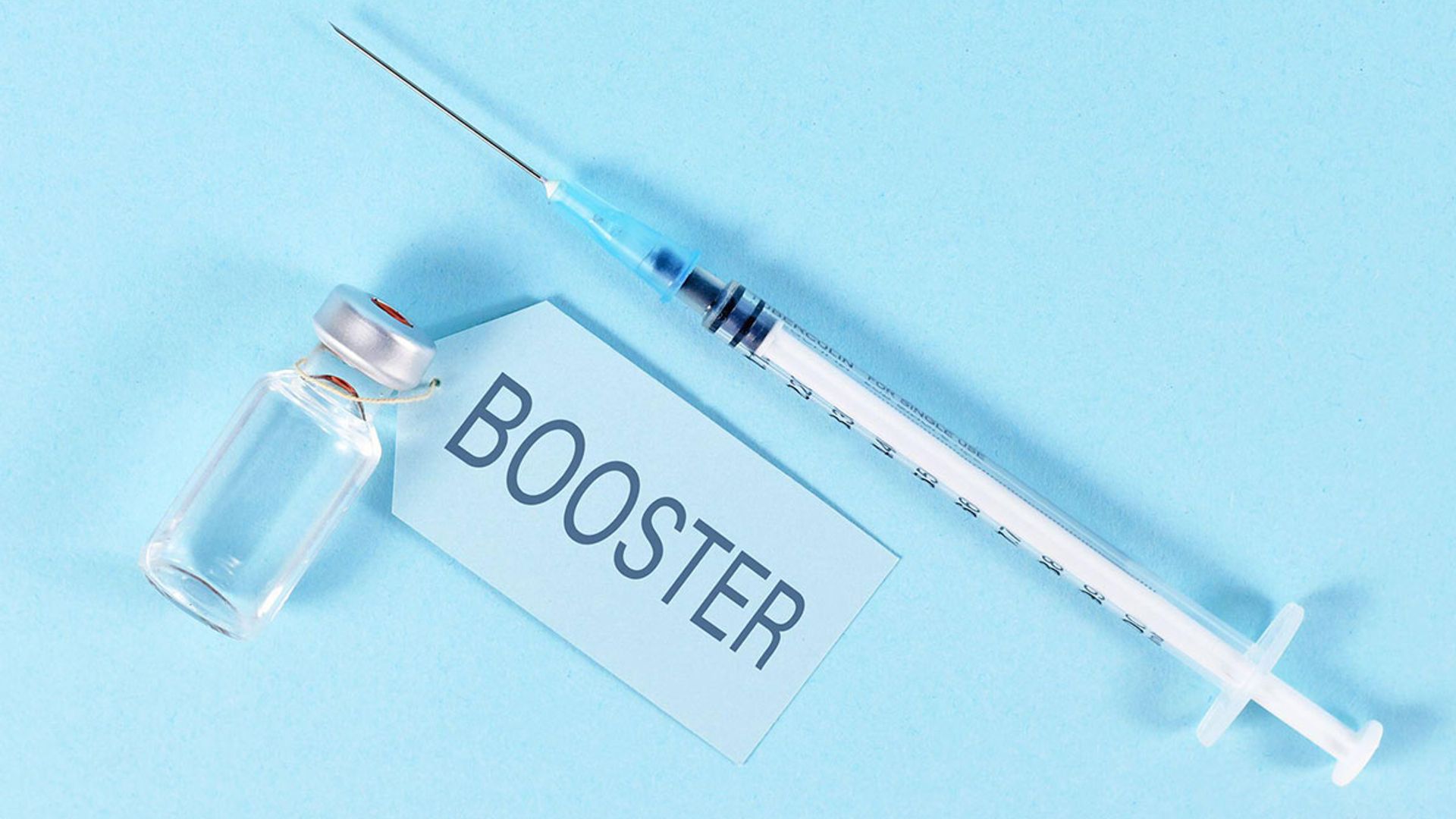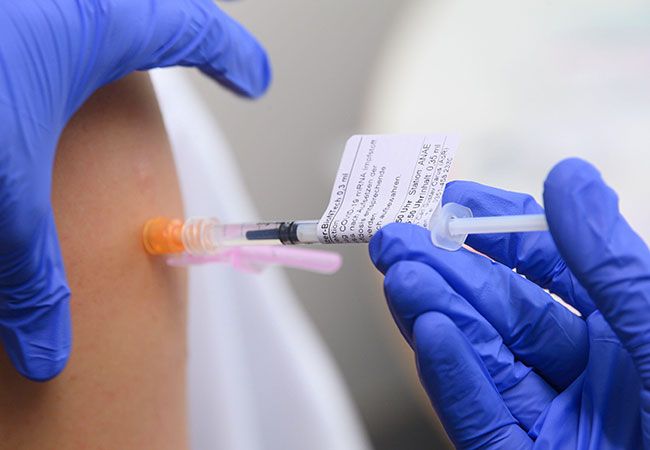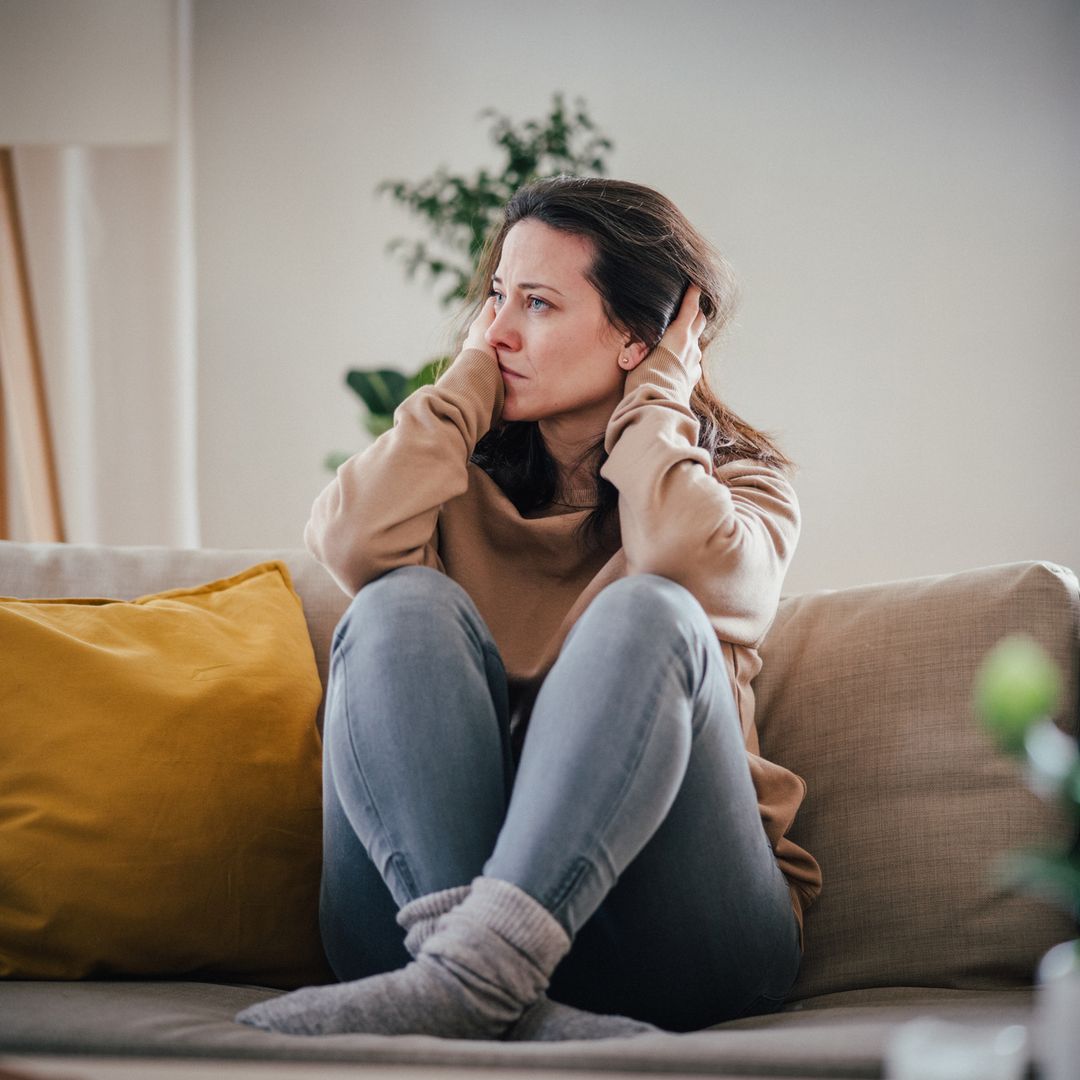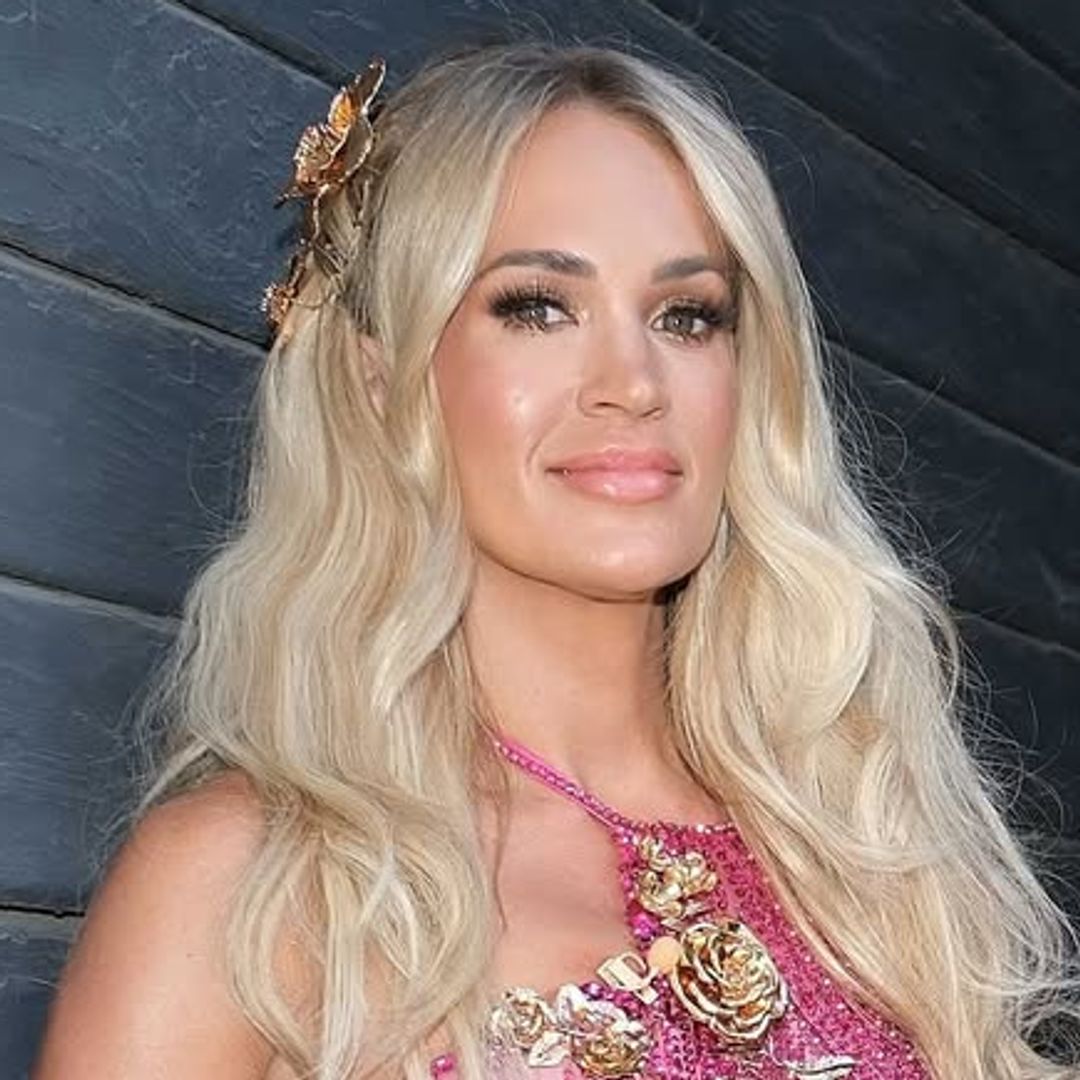According to the Office of National Statistics, 82-89 per cent of the UK have received at least two Covid vaccines. Now, many of us are looking to the Covid booster jab, but from how to book in for one, to the potential side effects and whether the kind of booster you have (Pfizer, Oxford/AstraZeneca or Moderna) must match the kind you had for doses one and two, there's a lot to get your head around. We caught up with NHS GP Dr Isabella Kent for the inside intel.
SEE: Have you got a cold or Covid? A 23-point checklist to tell the difference
1. What is the Covid booster vaccine?
"For the majority, the booster jab you'll be given is a dose of either the Pfizer/BioNTech or Moderna vaccine," Isabella says. "These are both what we call 'mRNA vaccines'. Rather than the virus itself, they contain a clever piece of genetic code that can teach our cells how to trigger an immune response if we come into contact with Covid in the future."
2. Does the Covid booster have to be the same kind as dose one and two?
Contrary to popular belief, the type of Covid booster vaccine you have doesn't have to match the kind you had for doses one and two. Isabella says: "This means that even if you had the AstraZeneca the first time round, you could get either the Pfizer/BioNTech or Moderna as your booster."
3. Who can get the Covid booster?
As it stands, the Covid booster jab is currently being offered to over 50s, while Isabella adds there are other categories that may make you eligible for one. "Younger people with health conditions that increase the risk of becoming seriously unwell with Covid (such as certain cancers or lung conditions) are also eligible, as well as their carers. Frontline health and social care workers will also be asked to come forward for a vaccine."
SEE: How to get rid of a cold in 24 hours with these top expert tips
4. When can you get the Covid booster?
You are only able to get the Covid booster jab at least six months after receiving the second dose of the Covid vaccine, according to Isabella.
5. Is the Covid booster necessary?
"Vaccines one and two provide fantastic immunity but this decreases over time," Isabella explains. "It's vital for those of us who are eligible for a booster to take up the offer to be vaccinated. This isn't just ideal but it's essential, to protect both ourselves and our loved ones this winter. The winter season is always a testing time for our immune systems given the higher risk of picking up winter bugs, including flu.
Those eligible for a Covid booster vaccine must wait six months after the date of their second dose
6. Can you have the Covid booster at the same time as the flu jab?
Yes. "If you're eligible for the flu vaccine, it's perfectly safe to have this at the same time as your Covid booster jab," says Isabella.
RELATED: 10 best supplements that will actually help boost your health
7. Covid booster side effects
Isabella tells us the potential side effects to come from the Covid booster jab are similar to the first and second dose, including:
- Chills
- Muscle aches
- Tiredness
- Headache
- Nausea
"These should only last for a couple of days," adds Isabella. "As with all vaccines, a sore arm around the injection site is also quite common."
8. How to book Covid booster
"The NHS will contact you once you become eligible for your Covid booster jab," says Isabella. "You'll then be able to book into a vaccination centre, GP or a local pharmacy."
Isabella adds that it's important to make sure your address and phone number registered with your GP is correct, in order to "avoid missing your invitation". And, "If you think you're eligible but haven't been contacted yet, you can try and book your appointment online via the NHS website," while the NHS itself adds that you can also go to a walk-in clinic.
You can find more information on the Covid booster jab via the NHS.
Like this story? Sign up to our newsletter to get other stories like this delivered straight to your inbox.









